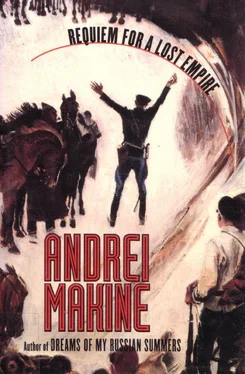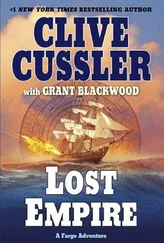When you came home there was still enough daylight to see the fine tracery of cuts on your face. "The windshield…" you murmured, and you stood facing me for a few seconds, staring at me in silence. On your forehead the scratches you had wiped clean when you came in were once more filling with blood. I was silent, too, stunned by the words that had just come into my mind but could not be spoken, "In any event you wouldn't have died." Or rather, "Even if you'd died it would have changed nothing between us." I was particularly struck by the serenity, almost joy, that these strange, unspeakable, apparently cruel words had given me. I had tumbled into a dazzling light, far, far away from this city, somewhere beyond our life. I began speaking to you in harsh tones, harsher and harsher the more touching and vulnerable you became in your evening routines: you undressed, went into the bathroom, asked me to help. I poured out a stream of water, drawing more from time to time from our reservoirs, the vessels that stood along the wall, and I continued talking, almost shouting, working up my indignation as if to convince myself that my luminous tumble had been simply an illusion brought on by tension.
"Do you know what our lives remind me of? Those samurais from World War Two who lay low in the jungle and remained at war fifteen years after the fighting had ended! No, it's worse than that. At least they laid down their weapons when they learned the truth. While we… It's true, we're about as much use as those madmen who ended up shooting at ghosts. We're chasing ghosts, too! We spent six months getting close to that idiot of a military attaché. Three months in Rome at the height of summer to arrange an informal ten-minute interview. I loathe that city! When I'm in that tourist bazaar I become a fool. We had to spend all those hours in that moth-eaten archive because our man was fanatical about uncial script or whatever that stupid stuff was. Then we had to locate him here- pure chance, of course. A chance about as broad as a shotgun cartridge in the magazine of a pistol. Of course our little strategists at the Center need their spectacular, instant results to earn their promotions. So now, quick as a wink, we have to recruit some guy the service has had its eye on for years. And to crown it all, he's just leaving. Did you hear his perfectly pleasant laugh? 'Oh, what excellent timing! The fighting's breaking out just when, as it happens, I was planning to take my leave.' And off he goes. Six months of work and several good chances of being bumped off in this filthy tropical climate. And all for nothing. No, sorry, I nearly forgot. We've obtained one piece of information of the first importance. The mines that are going to blow up the people here are of Italian manufacture. I guess you'll get a citation for that. Why are you laughing?"
I could see your smile reflected in the mirror in front of which you were drying your hair, tilting your head first one way, then the other. You did not answer me, gathering up your hair behind your head. The corners of your eyes stretched toward your temples and gave you the look of an Asian woman. I was silent, suddenly realizing that my sense of tumbling into the light had not been imaginary. That vision of clarity and space, taking us far away from the world, had come from your face, from your look, from that procession of days that lost itself in your half-closed eyes. "Even if you'd died it would have changed nothing between us." You came over to me and for a long moment laid your brow against my shoulder. And that night when I got up to take over the watch from you and let you sleep, you told me you were not sleepy. You began to talk about a day in winter, a house on the shores of a frozen lake. In this house there was a clock driven by weights, the chain had been tied in a knot by some wretched joker. This knot obliged your mother to raise the weights quite frequently. She had to watch out lest the knot should jam the machinery. And this vague domestic uneasiness contrasted in the child's head with the calm that prevailed around the lake, in the snow-covered forest.
I went out just before sunrise, after you had gone to sleep. I picked up the bodies of the peacocks, skirted the fence, and dragged them toward the ruins of a house. As I retraced my footsteps I frequently had to stoop to pick up the feathers that, in the gray light of dawn, punctuated the path with their dimmed iridescence.
Three days later it was already possible to cross the city again, negotiating here or there the right to pass through a tollgate consisting of two rusty barrels and a length of cable barring the route. The war was moving away from the capital, withdrawing into the interior of the country. At one crossroads, at a still furtive market, I was able to buy some vegetables and a wheaten pancake. When I returned I saw you from a long way off, beside the entrance that led to the garden. This was the one we used now, so as not to show ourselves in the street too much. You were seated on the threshold, your hands resting in your lap, your eyelids half closed. Close beside the door the water in the bucket you had just fetched shone violet, like the sunset sky. Seeing me at the end of the garden, you waved your hand slightly and I had this simultaneously clear and disconcerting thought: "There is the woman I love, waiting for me under a beautiful evening sky, at the door of this house, which we shall shortly be leaving forever, in this country where we nearly died." I repeated, "A woman I love," just to gauge how poor the word was. I longed to tell you what you were to me, what your silence and your patient calmness meant on the threshold of a house we should never see again.
You got up, went in, taking the water with you. I had a strong physical sense of how you were dreaming of days in a past totally foreign to this city, to this life. And even when, later in the night, it seemed that all there was of you was just your ardent body, the element of remoteness was still there. As we embraced, my hand squeezed your forearm and my fingers rediscovered those four notches cut in the flesh, scars from a burst of gunfire long ago. They were deep grooves that felt as if they had been incised by the claws of some large beast letting slip its prey.
We had to cross the country by car and leave it by sea. About sixty miles from the capital, on the far side of the uncertain line of the front, we drove off the road that was churned up by explosions. The mined area was ringed with bodies blown to smithereens, colorful piles of blankets and clothes and the carcasses of vehicles. The local who was escorting us spoke of "cunning" mines, that chose whom to kill. "Four women walked over it and nothing happened to them. Then a woman with a child came along and the mines woke up," he said, pointing to where the carnage happened.
We knew that, thanks to a pneumatic device, the detonators on these mines were activated only after several sets of pressure, so as to allow a whole column of vehicles to move onto the minefield. A column of vehicles, or a crowd of women and children escaping from their burned village. The celebrated Italian mines.
Perhaps it was on that day, on that road gutted by mines, that for the first time I thought about an end to the life we had been leading for several years. Resuming his seat in the vehicle, our guide confided in us, "The Russians deceived us. To begin with they promised paradise, all peoples are brothers and all that. Then we saw they didn't believe in it themselves. And now that they've gone forever we are killing one another for nothing."
I glanced at you to see whether, like me, you had picked up that "forever." But you seemed not to be listening, your gaze fixed on the blue radiance of the sea that appeared to our right at each upward turn of the road. At that moment I had the impression I was betraying you. Like a soldier 'who, on learning of imminent surrender and armistice, deserts his post without warning those who are still fighting.
Читать дальше










